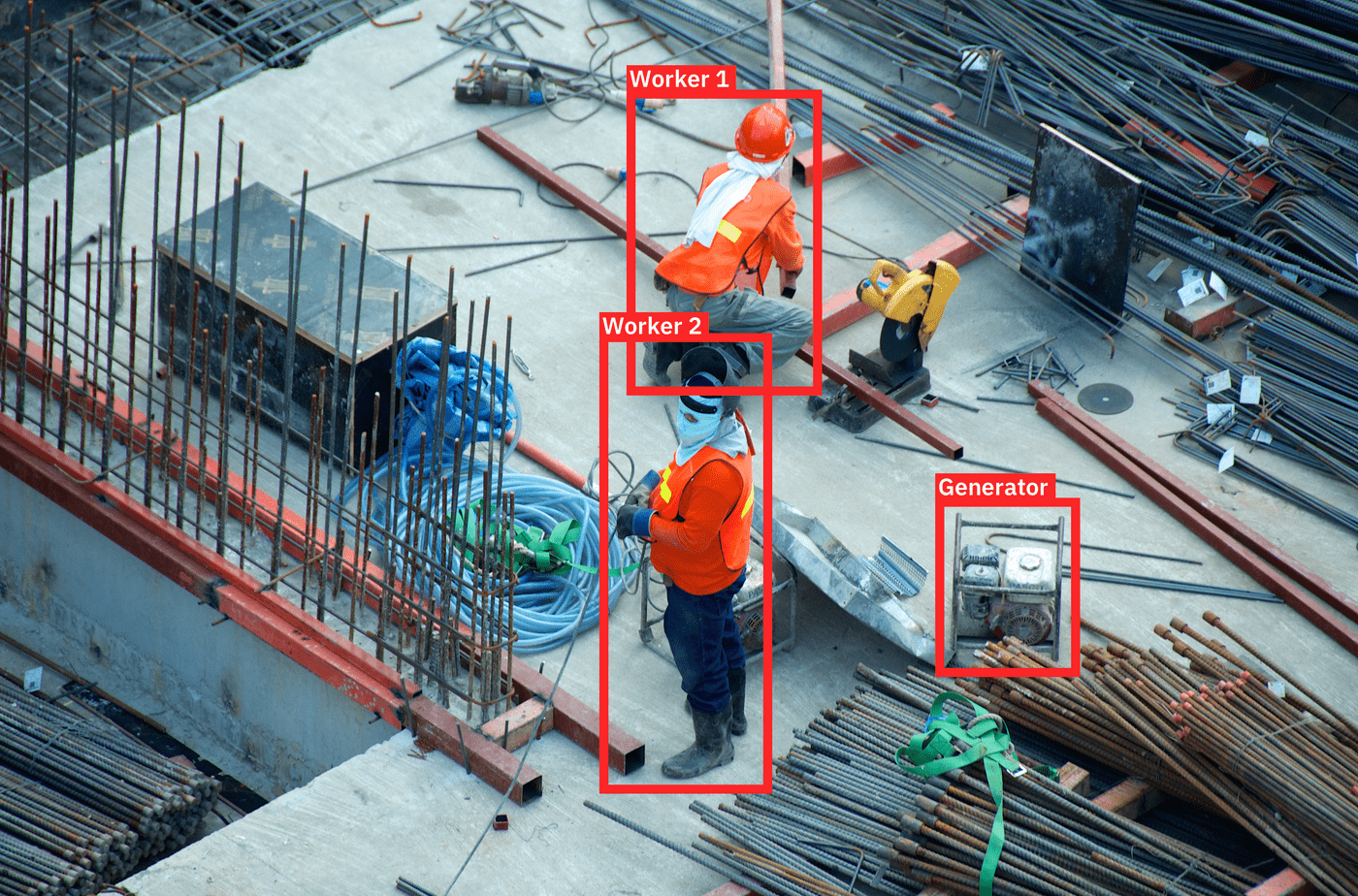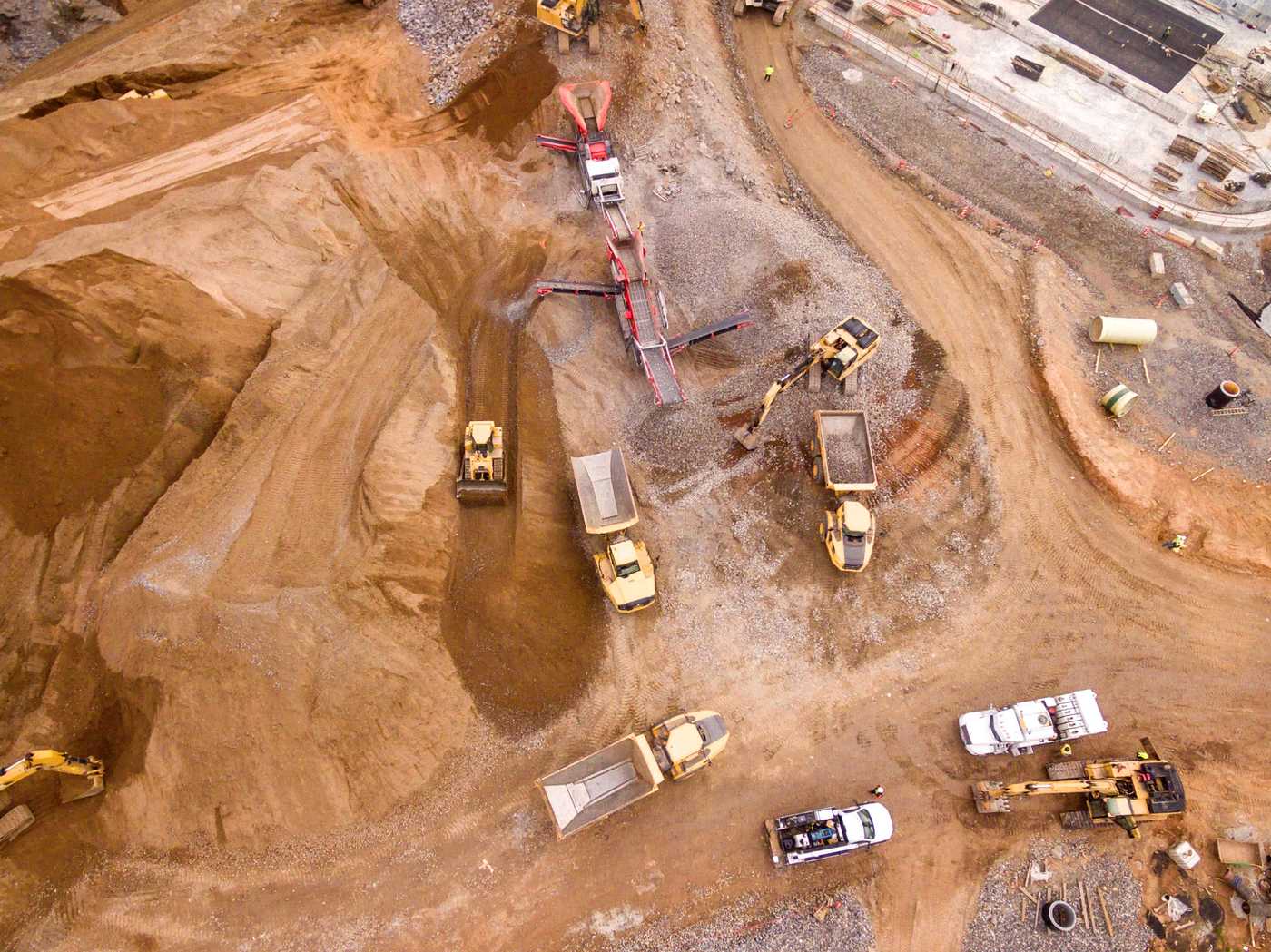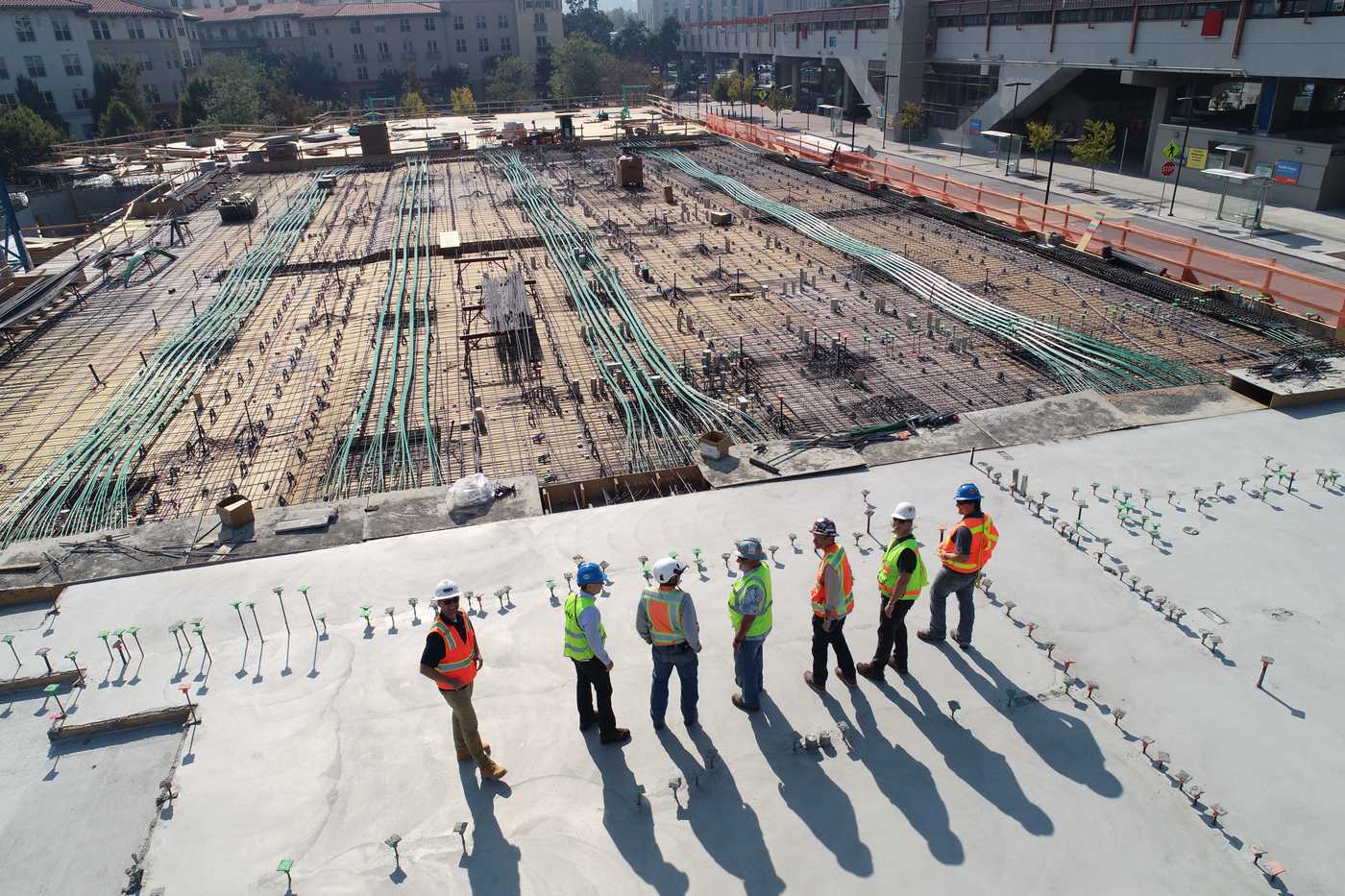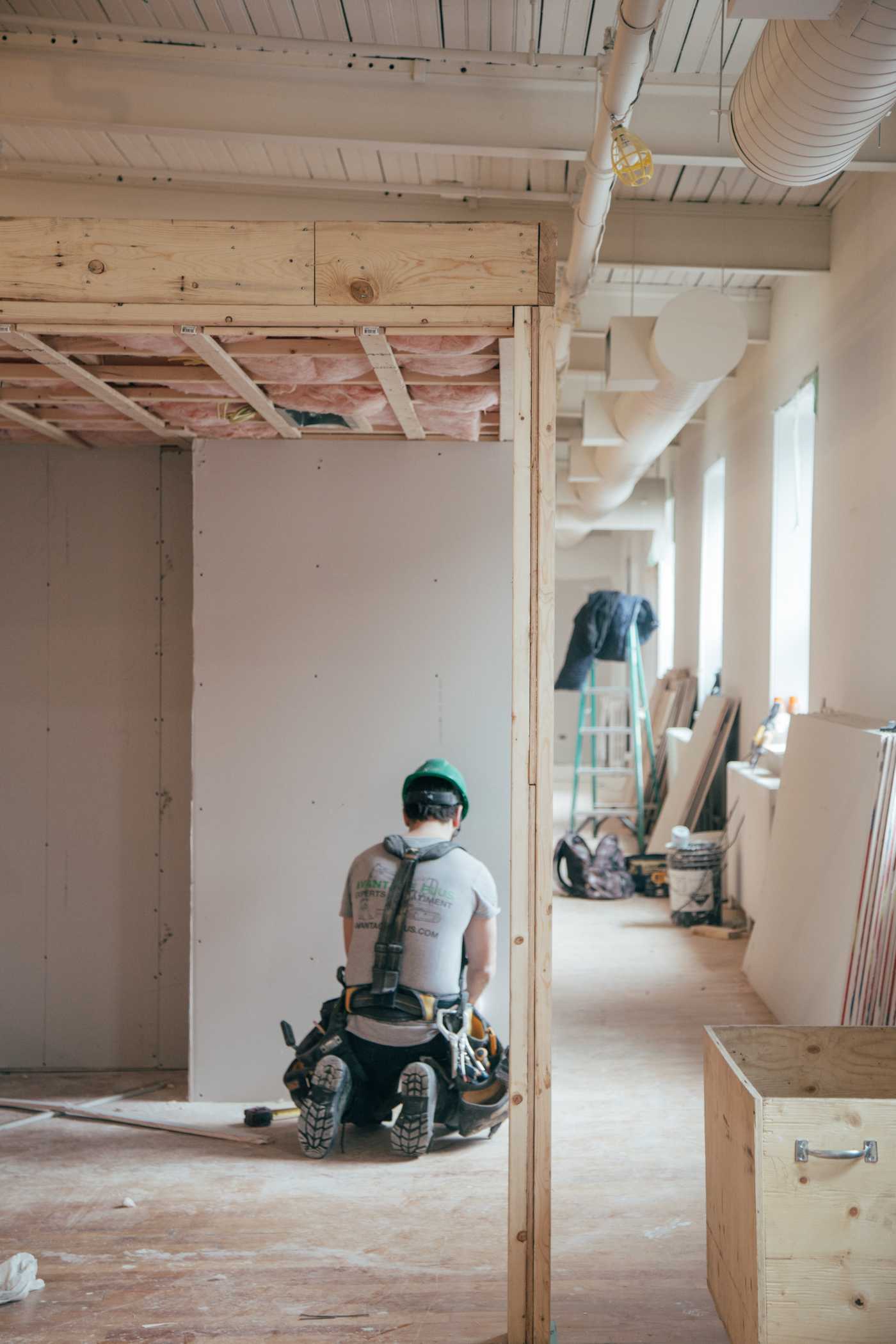AI Applications for the Construction Industry
06.17.2020

AI will transform the construction industry. Is your team ready?
In this article, we’ll explain why artificial intelligence (AI) and machine learning (ML) will transform how the construction industry designs and builds. First, we’ll explore some of the key industry trends driving this change. Then, we’ll dive into specific construction industry applications where AI will be useful.
Industry adoption
AI in the construction industry is projected to grow at a rate of 34% a year for the next 10 years. In 2018, the global AI in Construction market was $429 million USD. In 2026, that number is set to be $4.5 billion USD. This rapid rate of change is expected due to the culmination of several important industry trends and technologies.
Industry trends
Four important foundational technologies are paving the way for AI to transform construction.
- Cloud software
- Mobile workflows
- Jobsite cameras
- Drone surveys
Cloud software & mobile workflows: Cloud productivity software and mobile workflows allow construction companies to manage their projects better than ever before. A key piece of managing projects is collecting accurate data, then acting upon that data. Cloud software stores collected data in a single source of truth repository. Then, mobile workflows let workers read and write data to the cloud while on the jobsite. This feedback loop provides construction businesses with a tight understanding of a) the current state of the jobsite and b) how that compares with the design.
Jobsite cameras: Now, construction companies are adding more data collection to their toolkits by using cloud-connected cameras and regularly scheduled aerial drone surveys.

Cameras can do much more than security. They can help you monitor your workers, equipment, and productivity.
Surveillance cameras are traditionally used for security purposes, however, construction companies are increasingly using them for quality, safety, and productivity activities. By using a cellular connection, surveillance cameras can send their video footage back to the cloud in near real-time. With multiple cameras on a single jobsite, a construction company can monitor the progress of workers, keep an eye on safety, and double check the quality of past work. All this video footage can then be integrated into the construction company’s cloud productivity software of choice.
Drone surveys: Aerial drone surveys, completed by quadcopter or fixed-wing varieties, provide construction companies with a top-down view of their site, further improving their understanding of the current state of a project. Unlike cameras, drone aerial surveys can collect a 360 degree view of a site. When combined with footage taken at multiple altitudes, a full 3D model of a site can be captured.

Aerial surveys give a top-down view of construction site. AI can analyze video and images captured from the sky.
Now, with information being collected from a wide variety of data sources -- cameras, drones, and workers via their mobile devices -- how does a construction company act? AI will help construction companies analyze their data and take actions otherwise impossible or cost-prohibitive.
Applications
Construction AI applications can be grouped into three categories -- Safety, Productivity and Quality. In this section, we’ll walk through each category sharing specific AI applications useful for the construction industry.
Safety
Cloud-connected cameras allow for insights into the day to day activities of a construction site, at the worker level. If a business owner is watching a live construction feed, they can see if their workers are not being safe. However, watching live construction feeds all day isn’t a great use of time. AI can help monitor construction feeds without the need of a human operator. This unlocks a variety of safety applications previously impossible.

AI + Cameras will improve safety on the construction site.
- Personal protective equipment (PPE). AI can analyze video footage and detect whether or not humans in the video are wearing PPE like hard hats or high visibility vests. AI can analyze a day’s worth of footage in minutes, returning an end of the day report on how many workers violated PPE rules for the site.
- Social distancing. Like PPE detection, AI can analyze video footage and detect whether or not workers are complying with social distancing site rules. AI can detect when workers are in frame, then calculate a distance between each worker. When infractions occur, a push notification could be sent out to workers phones reminding them to distance themselves.
- Danger zones. AI can recognize when open pits and standing water in camera footage. Like social distancing, AI can detect workers and fall hazards, then generate alerts whenever a worker enters a danger zone.
Productivity
With data like job records, cost estimates, project plans, camera footage, and drone surveys all accessible via the cloud, it’s possible to analyze this data and take actions that boost productivity. However, many construction companies do not have enough in-house talent to parse through all their data. AI will help by ingesting these disparate datasets -- providing recommendations that reduce cost and increase efficiency.

AI will improve productivity by lowering costs, improving margins, and speeding up workflows.
- Revenue projections. AI can inspect historical accounting records, industry trends, and economic data points to predict future revenues for a specific company. While predictions like this are currently possible with traditional data science techniques, AI will allow construction companies to make these predictions without having to hire a data science team.
- Cost estimates. AI can analyze historical bids for projects and determine trends. Given a specific construction company, this can be useful for understanding if a bid is above or below the norm within a given season or year. Similarly, AI can identify line items within a bid that are above or below average, warranting a second look from a human.
- Document search. AI can speed document search within mobile apps and websites that construction companies use on a daily basis. AI can analyze each image and video within a document repository and mark it with useful “tags” that make it more searchable. For example, imagine a daily field report titled “Motor needs repair”. In this field report is a photo of a forklift. A month later, a worker wants to find this document, but can’t remember its name. The worker opens their project management mobile app and searches for “Forklift”. With traditional document search, the mobile app will return empty results, as it is searching across document titles, not contents inside of an image. With AI, this photo of a forklift will automatically be tagged as “forklift”, exposing it to search. AI will increase productivity on worksites by allowing people to find the documents and files that they need faster.
- Resource tracking. With enough cloud-connected surveillance cameras on a jobsite, the movement of workers, equipment, and large tools can be tracked. Traditionally, construction companies would place GPS trackers on their largest equipment. However, these trackers are costly, so their return on investment only makes sense for high-risk / expensive equipment. AI can power cameras to count workers, identify vehicles, identify work activities, then report rough locations back to project management software. For example, imagine six cameras deployed throughout an excavation site. AI can count the number of vehicles entering and exiting the site. AI can count the number of workers at each sub-section of the site. And AI can count the number of backhoes and cranes on the site today. All these AI provided data points give construction companies a better real-time picture of their site.
Quality
With construction workers bringing mobile devices like phones and tablets to the jobsite, inspections, training, and record keeping can be done in the field. AI will help with this transition to mobile by making inspections less subjective, making training more tailored to each worker, and record keeping more consistent.

AI-powered image recognition can let workers know if the job was done to spec in real-time.
- Job done to specification. Many construction companies use mobile apps to track their jobs. For example, at the end of a paint job, a company can take photos of the completed paint work and attach the photos to a field report. This type of documentation provides transparency to the customer and protection to the construction company. AI can improve this process by giving workers real-time feedback on whether their work was completed to specification. For example, a painting company could utilize an AI image analyzer to detect whether too much paint, not enough paint, or inconsistent paint was applied on a surface. When the workers finish applying paint to the surface, they can snap a photo with their mobile devices. This photo can then run through the AI image analyzer, where the AI can report back a “thumbs-up” or “thumbs-down” diagnosis. This will raise quality and reduce costs associated with needing to revisit a job site to fix previous work.
- Training. Some construction companies utilize e-learning to train workers on new equipment. AI can help with this process by tailoring learning content to each worker, based on their performance on quizzes. If a worker aces a quiz, then they likely do not need remediation coursework. However, if a worker misses a few questions inside of a learning module, AI can determine which coursework sub-sections need to be re-delivered to this worker.
- Fraud detection. Job records like invoices, field reports, and work orders often contain important accounting information like costs and quantities. Fraud detection helps companies understand when employees or vendors are manipulating financial data. However, traditional fraud detection algorithms aren’t very sophisticated. They generally rely on hardcoded thresholds like, “Purchases over $1,000 require review”. AI can outperform these old fraud detection models by identifying outlier records, whether they’re high cost, low cost, unusual for your business season, or unusual based on time of day.
Conclusion
AI will transform the construction industry by allowing designers and builders to take action on the vast amounts of data that are collected on modern construction sites. AI will let companies cut through the noise, taking action on important safety, quality, and productivity initiatives previously impossible.
If you or your team would like to brainstorm how AI could help your construction business, drop your email in the contact form below, and one of our team members will contact you shortly.
Schedule a chat
Drop your email below to get started. We'll respond shortly with an email to schedule a free consultation.